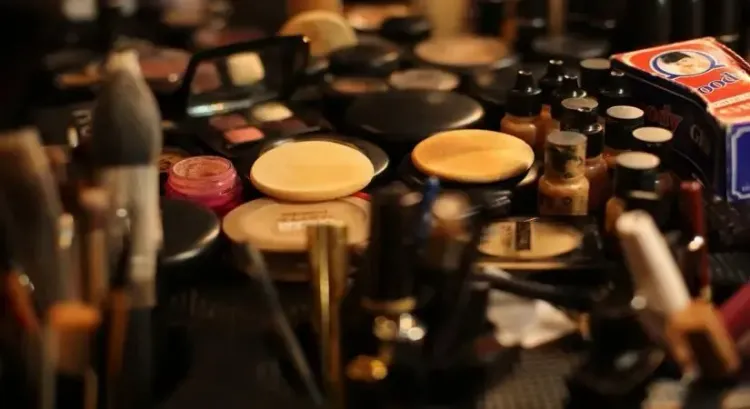Is Tamil Nadu Cracking Down on Unlicensed Homemade Cosmetics?

Synopsis
Key Takeaways
- Tamil Nadu Drug Control Department is intensifying efforts against unlicensed cosmetic producers.
- 66 units have been identified for potential violations of the Drugs and Cosmetics Act.
- Legal action may be taken against violators under Section 18(c).
- Entrepreneurs must apply for a COS-8 license to operate legally.
- Products must adhere to Good Manufacturing Practices (GMP).
Chennai, June 26 (NationPress) In light of escalating worries regarding the quality and safety of homemade cosmetic products heavily promoted via social media, the Tamil Nadu Drug Control Department has initiated a comprehensive crackdown on unlicensed producers.
Responding to public complaints, the department has pinpointed 66 establishments suspected of breaching the Drugs and Cosmetics Act of 1940.
A senior official from the department has confirmed that the majority of these establishments advertise their products on social media platforms without securing the necessary manufacturing licenses.
“We have commenced block-level inspections on the directives of the Director of Drugs Control, P.U. Karthigeyan. Should we discover violations, we will pursue legal action under Section 18(c) of the Act,” the official stated.
This crackdown is a response to the increasing influx of subpar products saturating the market. A total of 38 categories of personal care and cosmetic items fall under regulatory oversight, including skin and tooth powders, toothpaste, creams, shampoos, hair oils, nail polish, kajal, henna, sindoor, cold wax, face packs, and toilet soaps.
At present, Tamil Nadu is home to 340 licensed cosmetic manufacturers, with 37 of them located in the Coimbatore region. The department has ramped up inspections of these units, particularly those that are actively marketing products on social media.
Two units in Coimbatore have already been identified as violating promotional regulations. Officials observed that while some establishments intentionally disregard the law, others are simply unaware of the licensing requirements.
“We recommend that these small-scale manufacturers apply for a license to avoid legal repercussions,” an official emphasized.
To legally produce cosmetic products for commercial distribution, entrepreneurs must submit an application for a COS-8 license through an offline procedure to the Director of Drug Control in Chennai.
The application fee is Rs 10,000 for up to 10 products, and the license remains valid for a lifetime, with a renewal fee of Rs 10,000 every five years. Approval is contingent upon a self-declaration of adherence to Good Manufacturing Practices (GMP) and a subsequent field inspection by drug control officials.
Cosmetic products are also required to meet standards established by the Bureau of Indian Standards (BIS) and adhere to the 7th Schedule of the Cosmetics Rules, 2020, which delineates guidelines for manufacturing premises, equipment, and hygiene protocols.
Following the recent inspections, major e-commerce platforms have started requesting licenses from sellers. In light of this, many small-scale manufacturers have opted to remove contact information to avoid scrutiny. However, officials underline that legitimate businesses can operate lawfully by adhering to the correct procedures and securing the necessary approvals.







